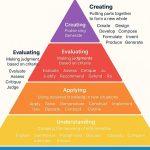
Tutoring Tutors: Empowering Educators for Students Successs
Introduction to Tutoring Tutors
Education is a journey that requires guidance, patience, and understanding. Tutors play a crucial role in this journey, helping students overcome challenges and achieve their academic goals. But who teaches the tutors? This is where tutoring tutors comes in. Tutoring tutors is about providing the necessary training and support to those who help others learn. It’s not just about passing on knowledge. It’s also about making sure that tutors have the skills they need. These skills allow them to make a real difference in their students’ lives.
In today’s world, where education is constantly evolving, the importance of tutoring tutors cannot be overstated. Mastering the subject is important. Understanding how to communicate effectively is crucial. Learning to motivate students is also key. Tutor training is essential for anyone looking to make a lasting impact in the field of education.
What is the Difference Between Tutor and Tutoring?
Before diving deeper into the concept of tutoring tutors, it’s essential to understand the difference between a tutor and tutoring. A tutor is an individual who provides one-on-one instruction or guidance to a student in the specific the. They help students grasp complex concepts, finish assignments, and prepare for exams. Tutoring, on the other hand, refers to the actual process of teaching or guiding a student. It’s the act of imparting knowledge and skills. This can be done by a tutor, a teacher, or even through an online platform.
When we talk about tutoring tutors, we’re focusing on equipping those who tutor with the tools they need. We aim to provide them with techniques to be more effective in their roles. This training can cover a wide range of areas. These areas range from mastering teaching methods to understanding educational psychology. This ensures that tutors are well-prepared to meet the diverse needs of their students.
The Role of a Tutor Trainer
Tutoring tutors involves much more than just giving tutors a few tips on teaching. It’s about developing a comprehensive understanding of the role of a tutor trainer. A tutor trainer is responsible for shaping the abilities and knowledge of tutors, ensuring that they can handle the challenges of teaching with confidence and competence.
For instance, a tutor can be excellent in their subject but struggle to communicate effectively with students. A tutor trainer would work with them to develop better communication skills. They would use examples, role-playing, and feedback to guide their improvement.
The responsibilities of a tutor trainer include:
- Assessing Tutors’ Skills: Understanding the strengths and weaknesses of tutors to provide targeted training.
- Developing Training Programs: Creating customized programs that address specific needs, such as subject mastery or classroom management.
- Providing Continuous Support: Offering ongoing guidance and resources to help tutors grow and adapt to new educational challenges.
Key Strategies in Tutoring Tutors
The success of tutoring tutors lies in the strategies used to train and support tutors. These strategies are designed to ensure that tutors are not just knowledgeable in their subjects but are also skilled in conveying that knowledge effectively.
- Effective Teaching Techniques Teaching is not just about knowing the material; it’s about knowing how to present it in a way that students can understand. This might involve using analogies, breaking down complex concepts into simpler parts, or using visual aids to enhance understanding. For example, a math tutor might use real-life scenarios to explain abstract concepts like algebra, making it easier for students to grasp.
- Building Strong Communication Skills Communication is key in tutoring. It’s not enough for tutors to know the subject; they need to be able to explain it clearly and in a way that resonates with students. This involves active listening, empathy, and the ability to adjust their teaching style to meet the needs of different learners. A tutor trainer might use role-playing exercises to help tutors practice and improve their communication skills.
- Mastering Subject Content for Tutors While teaching methods and communication are essential, subject mastery is at the core of effective tutoring. Tutors must have a deep understanding of the subjects they teach, whether it’s math, science, or literature. Tutoring tutors often involves advanced subject training, ensuring that tutors are not just teaching the material but truly understanding it.
How Do I Start Online Tutoring?
Starting a career in online tutoring can be an exciting and rewarding path, especially with the growing demand for remote education. However, like any other profession, it requires preparation and understanding. Here’s how you can start:
- Identify Your Strengths The first step in becoming an online tutor is identifying the subjects you’re passionate about and knowledgeable in. Whether it’s math, science, language arts, or another subject, having a strong foundation is crucial.
- Gain Certification While it’s not always required, obtaining a certification in your subject area or in tutoring can boost your credibility. Many online platforms offer courses that can help you become certified and recognized as a professional tutor.
- Choose the Right Platform There are many online platforms where you can offer your tutoring services. Some popular ones include Chegg Tutors, Tutor.com, and Wyzant. Each platform has its own set of requirements. They also have different payment structures. It’s important to choose one that aligns with your goals.
- Set Up Your Online Classroom To be successful in online tutoring, you need the right tools. This includes a reliable computer, a strong internet connection, and software like Zoom or Google Meet for video conferencing. Additionally, having a digital whiteboard and access to online resources can enhance your teaching.
- Promote Your Services Once you’re set up, it’s time to promote your services. Create a professional profile, highlight your qualifications, and showcase any positive reviews or testimonials. You can also use social media and online communities to reach potential students.
Starting online tutoring can be a fulfilling experience. It allows you to share your knowledge with students from all over the world. You can do this while working from the comfort of your own home.
Tools and Resources for Tutor Training

In the world of tutoring tutors, having access to the right tools and resources is essential. These tools can range from online platforms to books. They also include courses that help tutor trainers and tutors alike enhance their skills and knowledge.
- Best Online Platforms for Tutor Training Several online platforms offer comprehensive training programs for tutors. These platforms provide courses on everything from subject mastery to communication skills. Some popular platforms include:
- Coursera: Offers courses from universities and organizations on various subjects, including tutor training.
- Udemy: Provides a wide range of courses, including those specifically designed for tutor development.
- Khan Academy: While primarily for students, Khan Academy also offers resources that tutors can use to enhance their teaching.
- Books and Courses for Tutor Development There are many books and courses available that can help tutors improve their skills. Some recommended books include:
- “The Tutor’s Guide” by Jonathan Hancock: A comprehensive guide on how to become an effective tutor.
- “Teach Like a Champion” by Doug Lemov: Offers practical strategies for classroom management and effective teaching. For those who prefer online courses, platforms like edX and LinkedIn Learning offer courses specifically designed for tutors.
- Technology Tools to Aid Tutor Training Technology plays a significant role in tutoring tutors. Tools like video conferencing software, digital whiteboards, and educational apps can greatly enhance the training process. For example, Zoom is widely used for online tutor training sessions, allowing trainers to conduct live workshops and provide real-time feedback.
Remote Work and Online Tutoring
The rise of remote work has opened up new opportunities for online tutoring. Many professionals are now considering tutoring as a flexible and rewarding way to earn income while working from home. But how does remote work impact online tutoring?
- Flexibility and Work-Life Balance Remote work allows tutors to create a schedule that fits their lifestyle. Whether they prefer to work in the mornings or evenings, online tutoring offers the flexibility to choose when and where to work. This balance is especially beneficial for those who may have other commitments, such as parenting or another job.
- Access to a Global Student Base Online tutoring breaks down geographical barriers, allowing tutors to connect with students from all over the world. This not only expands their potential client base but also provides an opportunity to learn about different cultures and teaching styles.
- Challenges of Remote Tutoring While remote tutoring offers many benefits, it also comes with challenges. For instance, maintaining student engagement through a screen can be difficult, and technical issues can disrupt sessions. However, with the right training and tools, tutors can overcome these challenges and create a positive online learning experience.
The Future of Tutoring Tutors
As the education landscape continues to evolve, the future of tutoring tutors looks promising. New technologies, such as AI and virtual reality, are being integrated into tutor training programs, offering innovative ways to enhance teaching and learning.
- The Role of AI in Tutor Training AI is revolutionizing the way tutors are trained by providing personalized learning experiences. For example, AI can analyze a tutor’s teaching style and offer suggestions for improvement. It can also simulate real-life tutoring scenarios, allowing tutors to practice and refine their skills in a controlled environment.
- Evolving Educational Practices The methods and strategies used in tutor training are constantly evolving to keep up with changes in education. For example, there’s a growing emphasis on social-emotional learning, which focuses on developing students’ emotional intelligence. Tutors are now being trained to incorporate these principles into their teaching.
- The Future of Tutor Professional Development Professional development for tutors is becoming more accessible and flexible, thanks to online platforms and resources. Tutors can now take courses, attend webinars, and participate in online communities to continue their education and stay updated on the latest trends in tutoring.
FAQs About Tutoring Tutors
What qualifications are needed to train tutors?
Training tutors requires a deep understanding of educational methods, subject matter expertise, and strong communication skills. Typically, tutor trainers have a background in education, whether it’s a degree in teaching or extensive experience as a tutor themselves. Some may also hold certifications in specific subjects or in tutoring practices. Additionally, ongoing professional development is essential to stay updated with the latest educational trends and techniques.
How much can a tutor trainer earn?
The earnings of a tutor trainer can vary widely depending on factors such as location, experience, and the type of training provided. On average, tutor trainers can earn between $50 to $100 per hour. Those who work with institutions or provide specialized training may earn even more. Additionally, online tutor trainers who offer courses or workshops can generate additional income through digital sales.
Is online tutor training as effective as in-person training?
Online tutor training can be just as effective, if not more so, than in-person training. The key is in the quality of the content and the engagement of the participants. Online training offers the flexibility to learn at one’s own pace, access to a wide range of resources, and the ability to connect with tutors from around the world. However, it also requires self-discipline and motivation to stay on track. Interactive elements, such as live sessions and group discussions, can enhance the effectiveness of online tutor training.
Tutoring tutors is about more than just teaching someone how to teach. It’s about empowering tutors with the knowledge, skills, and confidence they need to make a real difference in their students’ lives. Whether it’s through mastering subject content, developing effective communication skills, or staying updated with the latest educational practices, tutor training is essential for success in the world of education.
As the demand for tutoring continues to grow, so does the need for well-trained, skilled tutors who can guide students on their educational journey. Through tutoring tutors, we can ensure that every tutor is equipped to provide the best possible support to their students, leading to better outcomes and a brighter future for all.








